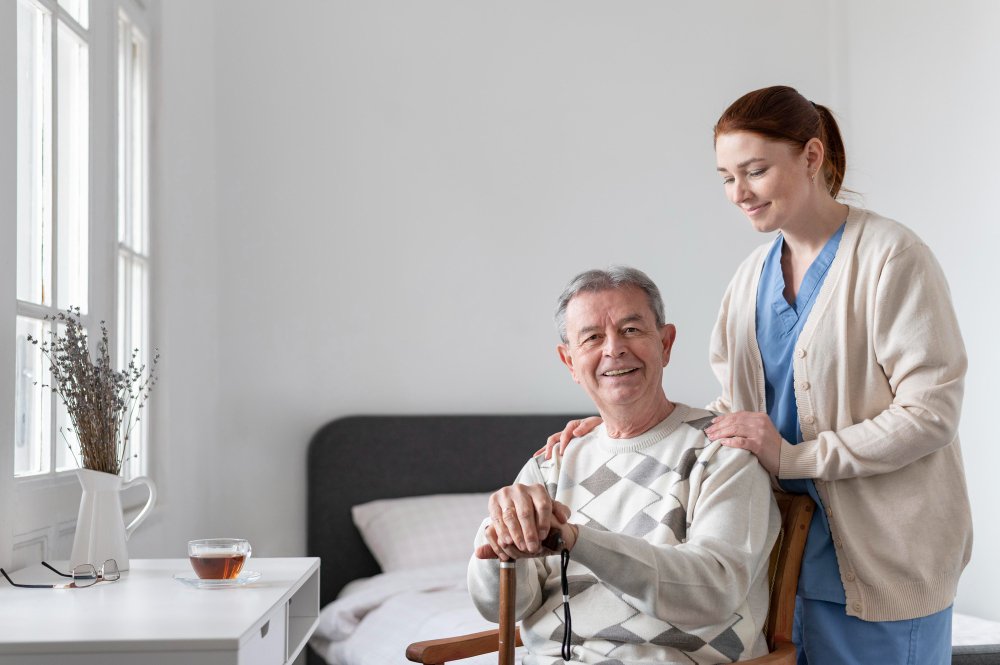Here’s an outline of what personal care services typically entail:
Assistance with Activities of Daily Living (ADLs):
- Bathing/Showering : Assistance with bathing or showering, ensuring safety and hygiene.
- Dressing : Help with selecting appropriate clothing and dressing.
- Grooming : Assistance with hair care, shaving, and oral hygiene.
- Toileting : Aid with using the toilet, maintaining cleanliness, and managing incontinence.
- Mobility Assistance : Support with walking, transferring from bed to chair, or using mobility aids.
- Medication Management : Reminders to take prescribed medications at the correct times.
- Assistance with medication administration, including opening containers and organizing pills.
Nutrition:
- Planning and preparing nutritious meals according to dietary requirements.
- Assistance with feeding for individuals who have difficulty feeding themselves.
Household Tasks:
- Light Housekeeping : Basic household chores such as dusting, vacuuming, and tidying.
- Laundry : Washing, drying, folding, and putting away clothes and linens.
- Errands : Grocery shopping, picking up prescriptions, and other necessary tasks.
Companionship and Emotional Support:
- Engaging in conversation and companionship to alleviate loneliness and provide mental stimulation.
- Participating in activities such as reading, playing games, or going for walks.
Monitoring and Reporting:
- Observing and reporting any changes in the client's condition to family members or healthcare professionals.
- Keeping records of care provided and any notable observations.
- Respite Care : Providing temporary relief for family caregivers to take breaks and attend to their own needs.
Specialized Care:
- Tailored care plans for clients with specific medical conditions or disabilities.
- Training and support for caregivers to handle specialized care requirements effectively.
Fall Prevention and Safety Measures:
- Assessing the home environment for potential hazards and implementing safety measures to prevent falls and accidents.
- Providing support and assistance to minimize the risk of falls during activities.
These services are typically delivered by trained and compassionate caregivers who prioritize the well-being and dignity of their clients. Customized care plans are developed based on individual needs and preferences, promoting independence and enhancing quality of life for those receiving care at home.


